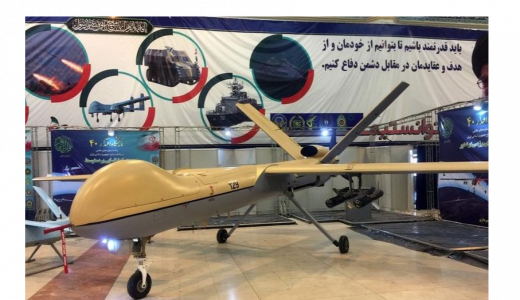By Michael Rubin
The 2020 Nagorno-Karabakh War upended the decades-long Armenia-Azerbaijan peace process. The hot take at the time was that Russia and Turkey were the victors. Both the United States and France, co-chairs with Russia in the Organization for Security and Co-operation in Europe (OSCE) Minsk Group, were caught off guard. Russian President Vladimir Putin, however, had initiated the ceasefire and crafted it to insert 2,000 Russian peacekeepers in Nagorno-Karabakh. Turkey also inserted troops as monitors in Azerbaijan.
Russian peacekeepers have shown themselves to be impotent as Azerbaijan flagrantly violates the ceasefire. While there are many parallel diplomatic processes—Russia’s, the OSCE’s, and the United States’—regional diplomats say that increasingly only Washington’s matters. Perhaps diplomacy is back.
How the White House and State Department craft diplomacy, however, is important. While the Biden administration seeks to promote a wide-ranging peace between Armenia and Azerbaijan, by conflating three different conflicts into one, they may condemn themselves to failure.
There are actually three different conflicts: Turkey-Armenia, Armenia-Azerbaijan, and Azerbaijan-Artsakh (the self-declared ethnic Armenian republic in Nagorno-Karabakh).
Turkey has blockaded Armenia since its re-independence in 1991, based not on any land dispute but rather on Turkey’s ethnic hatred toward Armenia. Ending this blockade should be an American interest, as it forces Armenia to use Iran as its economic outlook. Just last week, Turkey closed its airspace to Armenian passenger flights. The Turkey-Armenia diplomatic process should also address ending Turkey’s denial of the Armenian genocide. After all, if Germany’s official policy were to deny the Holocaust, no one in Washington would consider it an indispensable ally.
Armenia’s dispute with Azerbaijan should also be easily resolved. The two countries might appoint a third party—perhaps from a neutral Scandinavian country—to demarcate their borders. If Baku is sincere, it would drop its reference to fraudulent or extremist maps that show Armenia does not exist. Armenia, after all, could point to many maps from the pre-Soviet period that show a greater Armenia and no Azerbaijan. The 1975 Soviet General Staff map of the South Caucasus appears the most accurate map and can be the basis for peace. Azerbaijan, too, would have to end its blockade.
The Azerbaijan-Artsakh dispute will be the most difficult to resolve. Throughout the dispute, Armenia refrained from recognizing Artsakh’s independence so as not to undermine diplomacy. For Azerbaijan to negotiate with Armenia directly belies Azerbaijan’s insistence Armenia should have no role. Precedent is also against Armenia negotiating the fate of Artsakh. After all, Serbia and the United States did not insist Albania negotiate on behalf of Kosovo against the backdrop of that country’s fight for freedom against Serbia.
While Azerbaijani President Ilham Aliyev says the Nagorno-Karabakh is Azerbaijan’s based on Joseph Stalin’s gerrymandering, the region’s Armenian population has reason to be worried based on Azerbaijan’s war crimes, bulldozing of cultural heritage and, most recently, efforts to starve the Armenian population. Residents are right to be concerned that if they visit Armenia, Aliyev simply would not allow them back, a slow motion ethnic cleansing. Residents are also concerned that Aliyev’s serial violation of the 2020 ceasefire and the failure of Washington to hold him to account will only encourage future violations.
President Joe Biden’s team deserves credit for turning its attention to a long-neglected region, but not all diplomacy is the same. How Biden’s team frames the issue matters. It will be far easier to achieve lasting peace if the White House recognizes that what they assume to be one conflict is actually three. Two of these conflicts will be easy to resolve if leaders have good faith. If Turkey and Azerbaijan show they do not, then diplomacy is premature absent a push through sanctions and other coercive measures to make both Ankara and Baku offers they cannot refuse.



















































